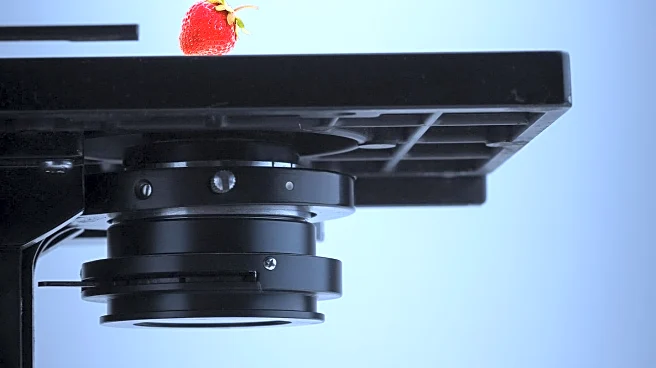What's Happening?
A new blood test developed by scientists at Lund University in Sweden can identify Alzheimer's disease in minutes, offering a fast and accurate diagnostic tool for clinics. The test detects Alzheimer's pathology by measuring specific biomarkers in plasma, including phosphorylated tau 217 and the ratio of amyloid beta 42 to amyloid beta 40. In a study involving 1,213 patients, the test demonstrated an accuracy rate of 88 to 92 percent, comparable to traditional methods such as brain scans. This advancement provides primary care doctors with a reliable tool to diagnose Alzheimer's, potentially reducing unnecessary referrals for expensive imaging.
Why It's Important?
The development of a rapid blood test for Alzheimer's disease is a significant breakthrough in healthcare, particularly for early diagnosis and treatment. It allows for quicker identification of Alzheimer's pathology, enabling timely intervention and management of the disease. This test can improve patient outcomes by facilitating access to treatments that target amyloid, such as Leqembi and Kisunla, which require proof of amyloid biology. Moreover, it reduces the burden on healthcare systems by minimizing the need for costly imaging procedures, making Alzheimer's diagnosis more accessible and efficient.
What's Next?
The test is already available in the USA and is expected to be implemented in other countries soon, primarily in specialist memory clinics. Guidelines and training for primary care use are anticipated within one to two years. As access to Alzheimer's treatments grows, the test will play a crucial role in patient triage and management. Ongoing research will focus on refining the test's accuracy and understanding how various factors affect its performance, ensuring consistent and reliable results across different clinical settings.











